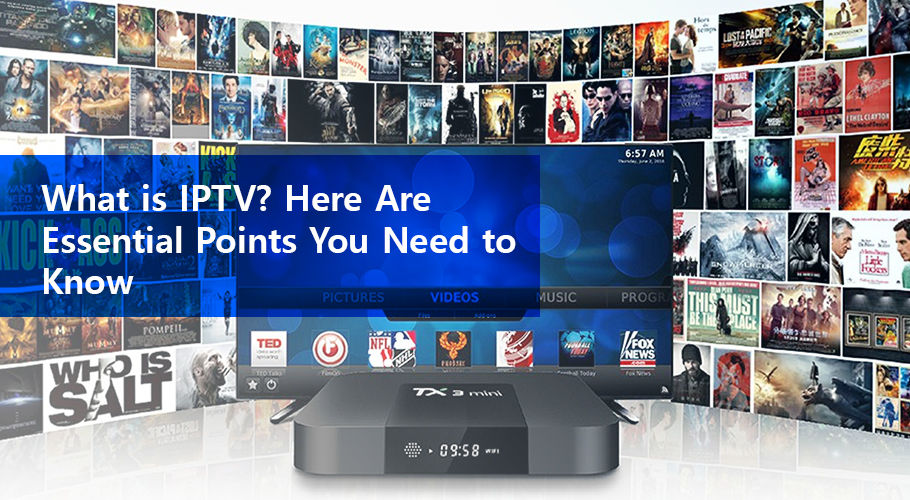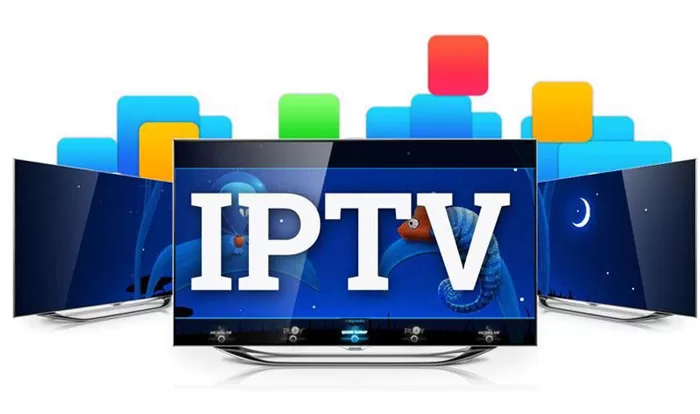IPTV Explained: Why It's Changing the Means We See TV
The emergence of Internet Method Television (IPTV) indicates a critical change in exactly how audiences involve with content. As we check out the intricacies of IPTV, it comes to be evident that this advancement is not merely a pattern; it poses considerable implications for the future of television usage and the landscape of electronic enjoyment.
What Is IPTV?
IPTV, or Net Procedure Tv, is a method of providing tv content over the web instead than through standard satellite or wire formats. This cutting-edge approach uses web method networks to transmit video information, permitting viewers to access a variety of shows directly through their net connection. Unlike conventional broadcasting, which relies upon radio waves or wire facilities, IPTV makes it possible for the streaming of content in an extra user-centric and versatile way.
Among the vital advantages of IPTV is its ability to offer on-demand accessibility to a substantial library of shows, films, and live broadcasts. Customers can delight in tailored seeing experiences, consisting of the alternative to stop, rewind, or record content. Additionally, IPTV services typically include interactive attributes, such as video clip on need, catch-up tv, and the capacity to access multiple devices at the same time.

Just How IPTV Works

The procedure begins with material gathering, where various tv networks and programs are assembled onto a centralized web server. From this server, the material is inscribed into electronic formats suitable for streaming. When a customer selects a program, the IPTV solution fetches the proper data packets from the web server and sends them to the user's gadget.
IPTV usually integrates interactive functions such as rewind, gain access to, and pause to an electronic library, boosting individual engagement. On the whole, IPTV represents an innovative combination of modern technology that changes typical television viewing right into a more dynamic and customized experience.
Benefits of IPTV
As audiences significantly seek adaptability and personalization in their enjoyment choices, IPTV uses a variety of advantages that provide to these demands. Among the most considerable advantages is the ability to access content on numerous tools, including mobile phones, tablets, wise TVs, and computers - Iptv. This multi-device compatibility allows customers to appreciate their favorite programs and motion pictures anytime, anywhere, enhancing their watching experience
Additionally, IPTV supplies a substantial library of on-demand web content, allowing subscribers to pick what to see, when to view it, and how to enjoy it. This contrasts with conventional broadcasting approaches, where customers are typically constricted by taken care of schedules. Additionally, IPTV solutions frequently supply personalization attributes, such as tailored referrals based on watching practices, permitting customers to discover brand-new content fit to their choices.
Additionally, IPTV typically includes innovative functions like cloud DVR capacities, allowing customers to tape-record and save programs for later viewing. Improved interactivity, such as the capacity to pause, rewind, or fast-forward material, more enriches the viewing experience. Iptv. Jointly, these advantages position IPTV as a compelling check out here option to standard television, satisfying the progressing assumptions of today's target markets
Comparison With Standard Television
Traditional television and IPTV present unique watching experiences, each dealing with different audience preferences. Conventional TV relies upon terrestrial, cable television, or satellite signals, providing a taken care of schedule for broadcasting. Audiences are commonly bound to certain time ports to enjoy their favored programs, which can be troublesome in today's hectic atmosphere.
On the other hand, IPTV delivers content through the internet, allowing users to stream shows and movies on-demand. This adaptability makes it possible for visitors to watch web content at their ease, getting rid of the restraints of a predetermined routine. Furthermore, IPTV solutions often offer access to a wider range of Recommended Reading channels and content, consisting of global programs and niche genres that standard cord bundles may not supply.
In addition, the interactivity of IPTV improves user involvement, permitting for functions such as rewind, document, and pause capabilities that traditional television lacks. Customers can likewise access auxiliary material, including thorough program overviews and visitor scores, enriching the general viewing experience.
Eventually, while conventional tv remains a staple for several audiences, IPTV's adaptability and wealth of material make it a progressively prominent option, appealing to those looking for even more control over their checking out habits.
Future of IPTV
The future of IPTV appears promising, driven by improvements in innovation and moving customer preferences. As broadband facilities remains to improve worldwide, IPTV solutions are positioned to supply higher-quality video web content with very little buffering and boosted user experiences. This progression is complemented by the spreading of smart gadgets, making it possible for viewers to gain access to IPTV web content on smartphones, tablets, and wise Televisions, hence enhancing ease and movement.
In addition, the integration of synthetic knowledge and equipment learning into IPTV platforms is expected to transform content shipment. Tailored referrals based upon viewing practices will improve individual involvement, making it easier for subscribers to discover relevant content. Additionally, the incorporation of augmented reality (AR) and online truth (VR) technologies holds the potential to read this post here create immersive seeing experiences that conventional television can not match.
The rise of subscription-based models and ad-supported streaming services shows a change in how consumers want to pay for content, further fueling IPTV's development. As even more consumers seek flexibility and customization in their seeing practices, IPTV is likely to come to be a leading pressure in the amusement landscape, improving exactly how content is produced, dispersed, and consumed in the coming years.
Final Thought
In final thought, IPTV represents a transformative advancement in tv usage, providing audiences unprecedented adaptability and control over their seeing experiences. Its capacity for on-demand access, individualized material, and interactive functions identifies it from traditional broadcasting approaches. As innovation continues to advance, the possibility for IPTV to further impact media usage patterns and improve the amusement landscape stays significant. This change underscores the relevance of adapting to arising modern technologies in a progressively electronic world.
The development of Web Method Television (IPTV) symbolizes a crucial shift in exactly how target markets engage with material.IPTV, or Net Protocol Television, is a technique of supplying tv content over the web instead than with conventional satellite or wire formats.Utilizing a network of web procedures, IPTV supplies tv content with a series of distinct processes. In addition, IPTV solutions frequently offer personalization functions, such as customized suggestions based on watching habits, allowing users to uncover brand-new web content suited to their preferences.
Additionally, IPTV services frequently supply accessibility to a wider variety of networks and material, consisting of worldwide programs and specific niche categories that standard cable television bundles may not provide.